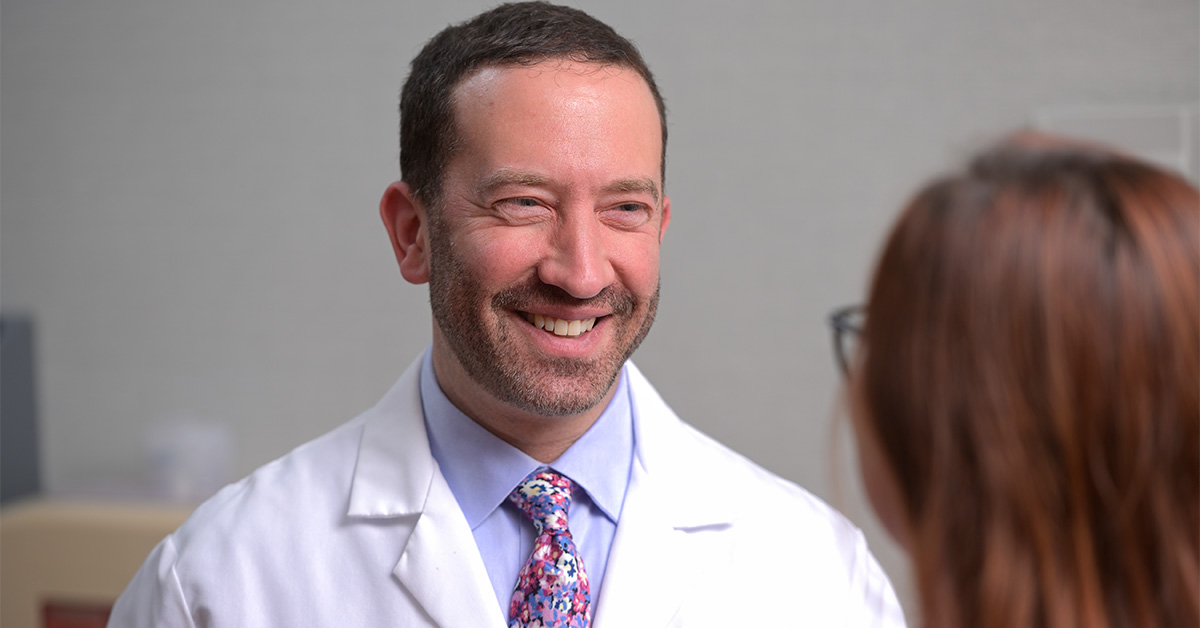
PHILADELPHIA (April 15, 2024) — Physicians at Fox Chase Cancer Center have now treated 1,000 patients using the EnVisio real-time Surgical Navigation System and SmartClip Tumor Marker since Fox Chase became the first cancer center in the Northeast to implement the technology in 2020.
The system allows surgeons to better navigate to the precise location of malignant breast tissue during a lumpectomy or partial mastectomy, resulting in less unnecessary breast tissue removal and shorter surgery times for patients.
The system has significantly advanced breast care for surgeons who previously had few tools available to guide them in the removal of cancerous breast tissue.
“Our goal is always to advance care in a way that positively impacts patient experience and quality of life. With the large volume of breast cancer cases that we see at Fox Chase, this technology has definitely helped us succeed in that,” said Richard Bleicher, MD, FACS, Professor in the Department of Surgical Oncology. “I can’t believe we’ve reached 1,000 cases already, but it has clearly been integral to what we do.”
Breast surgeons at Fox Chase use this technology by first placing the wireless SmartClip Soft Tissue Markers in the breast or other soft tissue to mark the location of the tissue to be removed. This is done at the time of breast biopsy or any time prior to surgery to remove a tumor.
During surgery, the SmartClip and the EnVisio Navigation system guide the surgical removal of cancerous tissue. The system’s real-time 3D rendering helps surgeons navigate their tools directly to the tumor to remove the affected tissue, something akin to surgical GPS.
“The navigation system has transformed how we do breast surgery because it shows a three-dimensional picture relative to the detector, making it easier for the surgeon to assess where the tumor is and how best to resect it,” said Bleicher. “It has allowed us to remove less tissue and perform surgery more efficiently so the patient has less time under anesthesia.”
The system is made by Elucent Medical. Lee Wilke, MD, the company’s co-founder, helped develop the technology, which she described as “next-generation surgical navigation.” Wilke is Senior Medical Director of Clinical Cancer Services at the UW Health University of the University of Wisconsin School of Medicine and Public Health. One of the goals of developing EnVisio, she said, was sparing millions of women undergoing breast cancer treatment the additional pain and stress from traditional wire-placement procedures.
In these procedures, which are performed during a lumpectomy, a wire is inserted into the breast to assist the surgeon in locating the area of breast tissue that needs to be removed. A surgeon follows this wire as a guide to the target area.
The EnVisio system has a significant advantage over other common methods of seed localization, in which tiny metal “seeds” are placed into abnormal tissue to mark its location. With EnVisio, a SmartClip, a non-radioactive marker, is placed in the targeted area of breast tissue during a mammogram or pre-surgery appointment.
The surgeon then uses a sterile detector integrated into their instruments to target the area and remove the SmartClip and the surrounding cancer during surgery. The EnVisio system has the capability to show not just the distance from the seed to the detector, but the specific location relative to it, down to the millimeter, Bleicher said.
“My hope is that in the near future,” Wilke said, “women will be able to move quickly through the pathway of diagnosis to surgery, while improving patient outcomes. Having the SmartClip placed prior to the day of surgery and the precision navigation in the operating room is improving the operative breast care of our patients.”